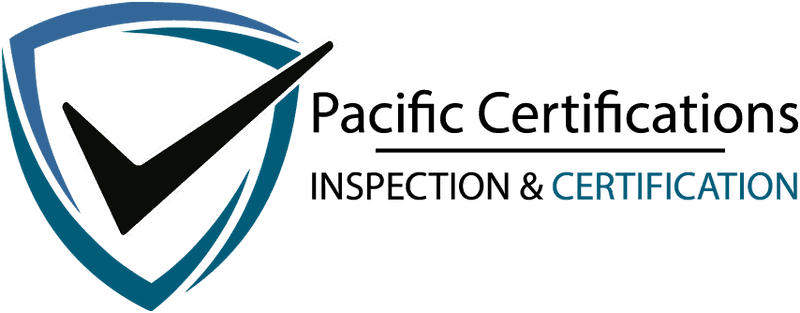ISO Certifications for Timber Manufacturing Businesses, Requirements and Benefits

ISO Certifications for Timber Manufacturing
ISO certifications play a crucial role in establishing trust & ensuring quality across various industries. In the world of timber manufacturing, adopting ISO standards improves operational efficiency, environmental impact and product quality etc. aspects.
With global markets demanding higher accountability, timber manufacturers need to meet strict requirements. In this article, we will explore the relevance of ISO certifications for timber manufacturing, their benefits, and how Pacific Certifications can assist companies in achieving these standards.
Introduction to ISO Standards for Timber Manufacturing
The timber industry operates within complex ecosystems involving sustainable forestry practices, supply chain transparency, and production quality. ISO standards provide a framework that aligns timber manufacturers with globally recognized protocols for efficiency, safety, and environmental protection.
Increasing global environmental awareness is pushing companies toward sustainable business practices. Certification under relevant ISO standards assures customers that the wood products they use originate from responsibly managed sources, adhere to legal requirements, and meet international quality benchmarks.
Timber manufacturing also faces challenges, including deforestation risks, operational waste, and chemical treatments. Adopting ISO standards helps manufacturers maintain regulatory compliance while achieving their business goals of efficiency and customer satisfaction.
Enhance your timber manufacturing operations with ISO certifications! Contact us at [email protected] or call +91-8595603096 to begin your certification journey.
Applicable ISO Standards for Timber Manufacturing
Several ISO standards can be applied to timber manufacturing, each covering different aspects. Let’s explore the most relevant ones:
1. ISO 9001: Quality Management Systems
ISO 9001 focuses on improving product quality, streamlining processes, and ensuring customer satisfaction. Timber manufacturers adopting ISO 9001 can create standardized operating procedures that improve efficiency and reduce errors. This certification is particularly useful for companies exporting timber products to international markets, where consistent product quality is expected.
2. ISO 14001: Environmental Management Systems
The timber industry must manage environmental impact carefully. ISO 14001 promotes sustainable operations by encouraging companies to reduce waste, conserve natural resources, and control emissions. Timber manufacturers with ISO 14001 certification demonstrate a proactive approach toward environmental stewardship—a key factor in gaining customers' trust and accessing eco-conscious markets.
3. ISO 45001: Occupational Health and Safety
Workers in the timber sector are often exposed to hazardous environments, such as heavy machinery or chemical treatments. ISO 45001 helps companies implement safety measures to minimize workplace risks, protect employees, and comply with occupational health standards. This certification not only ensures compliance but also boosts workforce morale and productivity.
4. ISO 26000: Social Responsibility
ISO 26000 provides guidelines on social responsibility, urging businesses to address social and ethical concerns. In timber manufacturing, this includes fair labor practices, community engagement, and transparency regarding environmental practices. While ISO 26000 is not certifiable, aligning operations with its principles helps companies enhance their corporate reputation.
5. Chain of Custody Certifications (ISO 38200)
ISO 38200 focuses on the traceability of raw materials through the supply chain, ensuring that wood and timber products come from legal and sustainable sources. This certification is crucial for timber manufacturers targeting markets with strict regulations on illegal logging and unethical sourcing.
Click here to find out more applicable standards to your industry
Need ISO certification for your timber manufacturing business? We’re here to help! Email us at [email protected] or call +91-8595603096 today.
How We Can Help
Pacific Certifications offers expert certification services to timber manufacturers seeking compliance with relevant ISO standards. We specialize in auditing and issuing certifications, helping companies demonstrate their commitment to quality and sustainability.
Our certification process is designed to be thorough and efficient, ensuring that businesses meet the necessary requirements without unnecessary delays.
By partnering with Pacific Certifications, you gain access to:
- Comprehensive audits tailored to timber manufacturing processes
- Experienced assessors who understand industry-specific challenges
- Seamless certification procedures that meet international standards
At Pacific Certifications, we help businesses achieve and maintain compliance with ISO 9001, ISO 14001, ISO 45001, and other standards critical to timber manufacturing. With our expertise, your organization can confidently pursue operational goals and global market access.
Achieve compliance and sustainability with ISO certifications for timber manufacturing! Contact us via [email protected] or +91-8595603096 to get certified.
Requirements of ISO Certifications for Timber Manufacturing Companies
The ISO standards are designed to enhance the quality and sustainability of business processes. Each standard focuses on specific operational areas, with a structured framework that companies, including timber manufacturers, can follow. Below are the key requirements for the ISO standards relevant to timber manufacturing.
ISO 9001: Quality Management System (QMS)
Key Requirements:
- Context of the Organization: Identify internal and external factors that can impact quality management.
- Leadership and Commitment: Top management must demonstrate commitment to implementing the QMS.
- Customer Focus: Ensure customer satisfaction through high-quality products and services.
- Process-Based Approach: Document and manage key processes to ensure consistency.
- Risk Management: Identify risks and opportunities that affect product quality and address them proactively.
- Performance Evaluation: Conduct internal audits and reviews to monitor the effectiveness of processes.
- Continuous Improvement: Use the Plan-Do-Check-Act (PDCA) model to drive improvements.
ISO 14001: Environmental Management System (EMS)
Key Requirements:
- Environmental Policy: Develop a policy committing to environmental protection and continuous improvement.
- Identification of Environmental Aspects: Assess how the company’s activities impact the environment (e.g., emissions, waste).
- Compliance with Legal and Other Requirements: Adhere to environmental laws and industry regulations.
- Objectives and Targets: Set measurable environmental goals aligned with business activities.
- Operational Control: Implement processes to manage environmental risks (e.g., pollution control).
- Monitoring and Measurement: Track environmental performance with relevant metrics.
- Emergency Preparedness: Plan for emergencies, such as chemical spills or fires.
ISO 45001: Occupational Health and Safety Management System (OHSMS)
Key Requirements:
- Hazard Identification and Risk Assessment: Identify workplace hazards and assess their impact.
- Legal and Regulatory Compliance: Ensure adherence to health and safety laws.
- Roles and Responsibilities: Define responsibilities for health and safety at all levels of the organization.
- Employee Participation: Involve employees in safety decision-making processes.
- Operational Controls: Implement safety procedures to manage risks effectively.
- Incident Reporting and Investigation: Develop a system for reporting and investigating accidents.
- Emergency Preparedness and Response: Create plans to handle emergencies such as machinery accidents or fires.
ISO 26000: Social Responsibility
Key Requirements:
- Governance and Accountability: Promote transparency and integrity in business operations.
- Human Rights and Labor Practices: Ensure fair treatment of employees and respect for human rights.
- Environmental Responsibility: Support environmental conservation efforts through responsible operations.
- Fair Operating Practices: Avoid corruption and engage in fair competition.
- Community Engagement: Contribute to local communities through social programs and partnerships.
- Consumer Protection: Provide accurate product information and prioritize customer safety.
ISO 38200: Chain of Custody for Wood and Wood-Based Products
Key Requirements:
- Documentation and Traceability: Maintain records of raw material sources and product movements along the supply chain.
- Supplier Evaluation: Ensure that suppliers comply with legal and sustainability requirements.
- Risk Assessment and Mitigation: Identify and address risks related to illegal sourcing or environmental harm.
- Information Disclosure: Provide transparent information to customers and stakeholders about product origins.
- Internal Control Systems: Implement processes to monitor and validate the integrity of the supply chain.
- Compliance with Regulations: Align with relevant laws and international agreements on sustainable forestry.
Implementing ISO standards like ISO 9001, ISO 14001, ISO 45001 etc ensures that timber manufacturers operate efficiently and ethically. These standards cover all critical areas, from product quality and environmental responsibility to workplace safety and social accountability.
Timber manufacturers that adopt these ISO standards can build trust with customers, reduce operational risks, and stay compliant with global regulations.
Looking to grow your timber manufacturing business with ISO certifications? Reach us at [email protected] or dial +91-8595603096 to schedule an audit.
Benefits of ISO Certifications for Timber Manufacturing Businesses
Adopting ISO standards offers significant advantages, making timber manufacturers more competitive and resilient. Here are some key benefits:
- With ISO certifications like ISO 9001 and ISO 38200, timber manufacturers can easily enter international markets. Certified companies often find it easier to establish partnerships with global buyers who prioritize sustainability and quality.
- Standardized procedures under ISO 9001 help timber manufacturers optimize their production processes, resulting in higher output and reduced wastage. This efficiency translates into cost savings and faster delivery times.
- ISO 14001 certification demonstrates a manufacturer’s commitment to reducing environmental impact.
- ISO 45001 ensures the implementation of safety protocols, minimizing risks and creating a safer working environment. A safer workplace fosters higher productivity and reduces employee turnover.
- ISO certifications serve as a mark of trust and reliability. Customers are more likely to purchase timber products from certified manufacturers.
ISO certifications made easy for timber manufacturers! Contact Pacific Certifications at [email protected] or +91-8595603096 for expert assistance.
Market Trends
As of 2024, there is a growing demand for sustainable wood products, driven by stricter environmental regulations and customer preferences for eco-friendly products.
The timber industry is also experiencing a shift toward digital tracking systems, enhancing supply chain traceability in line with ISO 38200. In addition, markets in Europe and North America are increasing restrictions on products sourced from illegal logging, encouraging manufacturers to adopt certifications that ensure transparency and legal compliance.
Global trends also show a heightened focus on carbon offset programs, with timber companies exploring ways to contribute to carbon neutrality. ISO 14001-certified businesses are in a favorable position to align their operations with these sustainability goals, making them attractive partners in both domestic and international markets.
Pacific Certifications is accredited by ABIS, in case you need support with ISO certification for your Timber manufacturing business, please contact us at [email protected] or +91-8595603096.
FAQs: ISO Certifications for Timber manufacturing
What is the importance of ISO certifications in timber manufacturing?
ISO certifications ensure that timber manufacturers meet internationally recognized standards for quality, safety, and environmental sustainability, fostering customer trust and market access.
Which ISO standards are most relevant to timber manufacturing?
Key standards include ISO 9001 for quality management, ISO 14001 for environmental responsibility, ISO 45001 for workplace safety, and ISO 38200 for supply chain traceability.
Can Pacific Certifications provide consultancy services?
No, Pacific Certifications focuses on audits and certification issuance. We do not offer consultancy, training, or gap analysis services.
What are the benefits of ISO 14001 for timber manufacturers?
ISO 14001 helps companies minimize environmental impact, comply with regulations, and attract eco-conscious customers by demonstrating sustainable practices.
How does ISO 38200 support sustainable timber sourcing?
ISO 38200 ensures traceability throughout the supply chain, verifying that timber products come from legal and sustainable sources, and helping companies meet anti-deforestation regulations.
How long does it take to get ISO certified?
The timeline varies depending on the company’s preparedness and complexity. However, with Pacific Certifications, the process is efficient, ensuring timely and accurate audits.
Read More at: Blogs by Pacific Certifications

